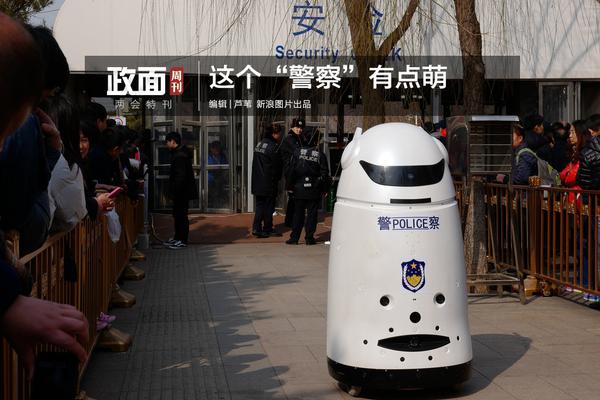
Service portal The total service portal functions should include "registration and login, operation desk, my order, my warehouse, my products, my accounts, supplier information, customer center, signing agreement and message center" and so on.
The basic modules of an SCM supply chain system include raw material management, production management, coding management, warehouse management, distribution management, anti-counterfeiting management, anti-smuffuling management, permission management and other functional modules.Raw material management: including raw material procurement, inspection, raw material traceability, warehousing and suppliers and other modules.
The ERP system mainly includes the following functional modules: supply chain management modules: including procurement, inventory management, inventory control, logistics management, etc.
1. There are customer management subsystem, supplier management subsystem, procurement management subsystem, warehouse management subsystem, etc. Supply chain management system refers to the integration of key business processes and corporate relationships from material suppliers to users in the entire supply chain in order to provide customers with goods, services or information.
2. Supply chain management system is a structured framework and method used to plan, coordinate, execute and monitor supply chain activities within an organization.This system aims to ensure that the supply chain can operate efficiently and meet customer needs, while reducing costs, improving quality and enhancing competitiveness.
3. User-friendly interface: The digital supply chain management system needs to design a user-friendly interface so that users can easily access and use the system. This includes multilingual support, intuitive navigation and easy-to-use reporting functions.

1. Supply chain management system is a structured framework and method for planning, coordinating, executing and monitoring supply chain activities within an organization. This system aims to ensure that the supply chain can operate efficiently and meet customer needs, while reducing costs, improving quality and enhancing competitiveness.
2. Supply chain is the whole process of a product from the purchase of raw materials to the successful sale of products. It can be understood as a chain related to the product. The links of purchasing materials, processing materials and selling products are closely connected by the chain, and each link has a huge relationship with the quality of the product. Contact.
3. Supply chain logistics management refers to a logistics management system centered on the core products or core business of the supply chain.
4. The content and significance of the concept of supply chain management. The ideas and methods of supply chain management have been applied in many enterprises and have made great achievements.
5. Briefly analyze what is a supply chain management system and its importance. Supply chain management system refers to the integration of key business processes and relationships of enterprises in the entire chain from the original material supplier to the end user to provide goods, services or information to end customers.
1. Supply chain management platform is a software system that integrates various supply chain management functions, aiming to coordinate, monitor and optimize the entire supply Chain process.The supply chain management platform usually integrates procurement, production, logistics, inventory management, order processing and other links to improve overall efficiency and transparency.
2. Supply chain management system refers to the integration of key business processes and relationships of enterprises in the entire chain from the original material supplier to the end user to provide goods, services or information to end customers.
3. Supply chain management system is a structured framework and method for planning, coordinating, executing and monitoring supply chain activities within an organization. This system aims to ensure that the supply chain can operate efficiently and meet customer needs, while reducing costs, improving quality and enhancing competitiveness.
4. Supply chain management is mainly to optimize the operation of the supply chain, so that the supply chain can be the whole process from procurement to satisfying the end customer at the lowest cost.
5. Supply Chain Management (SCM) is an all-round enterprise management application software that can help enterprises realize the comprehensive automation of the entire business operation.
Binance app-APP, download it now, new users will receive a novice gift pack.
Service portal The total service portal functions should include "registration and login, operation desk, my order, my warehouse, my products, my accounts, supplier information, customer center, signing agreement and message center" and so on.
The basic modules of an SCM supply chain system include raw material management, production management, coding management, warehouse management, distribution management, anti-counterfeiting management, anti-smuffuling management, permission management and other functional modules.Raw material management: including raw material procurement, inspection, raw material traceability, warehousing and suppliers and other modules.
The ERP system mainly includes the following functional modules: supply chain management modules: including procurement, inventory management, inventory control, logistics management, etc.
1. There are customer management subsystem, supplier management subsystem, procurement management subsystem, warehouse management subsystem, etc. Supply chain management system refers to the integration of key business processes and corporate relationships from material suppliers to users in the entire supply chain in order to provide customers with goods, services or information.
2. Supply chain management system is a structured framework and method used to plan, coordinate, execute and monitor supply chain activities within an organization.This system aims to ensure that the supply chain can operate efficiently and meet customer needs, while reducing costs, improving quality and enhancing competitiveness.
3. User-friendly interface: The digital supply chain management system needs to design a user-friendly interface so that users can easily access and use the system. This includes multilingual support, intuitive navigation and easy-to-use reporting functions.

1. Supply chain management system is a structured framework and method for planning, coordinating, executing and monitoring supply chain activities within an organization. This system aims to ensure that the supply chain can operate efficiently and meet customer needs, while reducing costs, improving quality and enhancing competitiveness.
2. Supply chain is the whole process of a product from the purchase of raw materials to the successful sale of products. It can be understood as a chain related to the product. The links of purchasing materials, processing materials and selling products are closely connected by the chain, and each link has a huge relationship with the quality of the product. Contact.
3. Supply chain logistics management refers to a logistics management system centered on the core products or core business of the supply chain.
4. The content and significance of the concept of supply chain management. The ideas and methods of supply chain management have been applied in many enterprises and have made great achievements.
5. Briefly analyze what is a supply chain management system and its importance. Supply chain management system refers to the integration of key business processes and relationships of enterprises in the entire chain from the original material supplier to the end user to provide goods, services or information to end customers.
1. Supply chain management platform is a software system that integrates various supply chain management functions, aiming to coordinate, monitor and optimize the entire supply Chain process.The supply chain management platform usually integrates procurement, production, logistics, inventory management, order processing and other links to improve overall efficiency and transparency.
2. Supply chain management system refers to the integration of key business processes and relationships of enterprises in the entire chain from the original material supplier to the end user to provide goods, services or information to end customers.
3. Supply chain management system is a structured framework and method for planning, coordinating, executing and monitoring supply chain activities within an organization. This system aims to ensure that the supply chain can operate efficiently and meet customer needs, while reducing costs, improving quality and enhancing competitiveness.
4. Supply chain management is mainly to optimize the operation of the supply chain, so that the supply chain can be the whole process from procurement to satisfying the end customer at the lowest cost.
5. Supply Chain Management (SCM) is an all-round enterprise management application software that can help enterprises realize the comprehensive automation of the entire business operation.
 Binance exchange
Binance exchange
747.29MB
Check Binance Download for PC Windows 10
Binance Download for PC Windows 10
276.57MB
Check Binance exchange
Binance exchange
384.77MB
Check OKX review
OKX review
359.11MB
Check Binance app
Binance app
358.68MB
Check OKX Wallet app download for Android
OKX Wallet app download for Android
763.88MB
Check Binance Download for PC
Binance Download for PC
836.21MB
Check OKX download
OKX download
245.95MB
Check Binance exchange
Binance exchange
541.96MB
Check OKX Wallet
OKX Wallet
381.58MB
Check OKX Wallet extension
OKX Wallet extension
764.28MB
Check OKX Wallet extension
OKX Wallet extension
846.99MB
Check Binance login
Binance login
447.98MB
Check Binance download
Binance download
694.14MB
Check Binance US
Binance US
277.64MB
Check OKX download
OKX download
773.21MB
Check Binance login
Binance login
849.43MB
Check Okx app download
Okx app download
316.87MB
Check Binance APK
Binance APK
331.84MB
Check OKX Wallet to exchange
OKX Wallet to exchange
412.82MB
Check OKX Wallet
OKX Wallet
485.48MB
Check Binance login
Binance login
216.24MB
Check OKX Wallet app download for Android
OKX Wallet app download for Android
959.34MB
Check Okx app download
Okx app download
954.92MB
Check Binance app
Binance app
127.81MB
Check Binance US
Binance US
763.37MB
Check Binance app
Binance app
956.62MB
Check OKX Wallet app
OKX Wallet app
513.92MB
Check OKX app
OKX app
967.95MB
Check Binance Download for PC
Binance Download for PC
998.78MB
Check OKX Wallet apk download latest version
OKX Wallet apk download latest version
999.79MB
Check OKX Wallet APK
OKX Wallet APK
112.43MB
Check Binance Download for PC
Binance Download for PC
856.89MB
Check Binance wikipedia
Binance wikipedia
179.77MB
Check OKX app
OKX app
511.32MB
Check OKX Wallet extension
OKX Wallet extension
821.48MB
Check
Scan to install
Binance app to discover more
Netizen comments More
2496 风雨飘摇网
2025-01-10 12:41 recommend
823 情面难却网
2025-01-10 12:23 recommend
1558 哀天叫地网
2025-01-10 12:12 recommend
2460 轻裘缓带网
2025-01-10 11:39 recommend
1591 言之有物网
2025-01-10 11:10 recommend